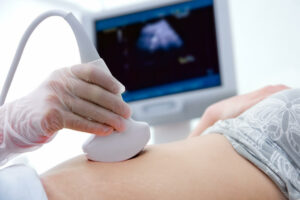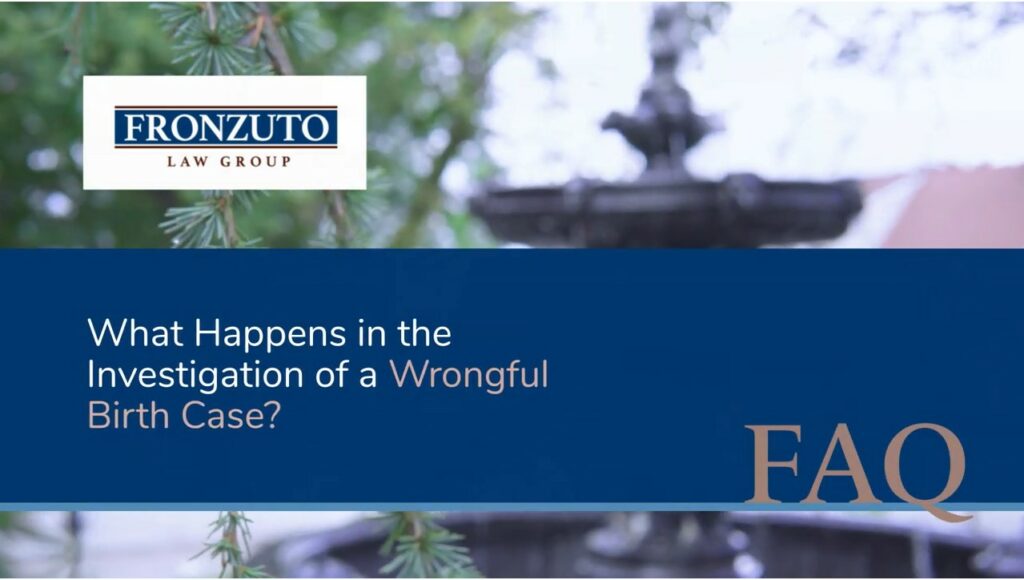Determining if You May be Eligible for Compensation for Wrongful Birth/Wrongful Life in New Jersey
The pregnancy and birth experience can be a beautiful time for a mother and partner, but it can also be challenging. An obstetrician and prenatal care team are there to support the mother and baby by providing accurate and timely checkups and tests to ensure that the pregnancy is progressing healthfully. So what happens if an obstetrician does not provide adequate care, information or is in another way negligent, and it leads to complications or unexpected consequences during pregnancy, at birth, or after?
Our team of wrongful birth lawyers has the experience and knowledge to determine if you have an actionable wrongful birth claim in New Jersey. Please feel free to contact Fronzuto Law Group at (973) 435-4551 or use our online contact form to request a free initial consultation if you suspect you may have grounds for a wrongful birth lawsuit.
What Does an Attorney Look for in a Wrongful Birth Lawsuit?
As part of a wrongful birth investigation, an attorney will pay particular attention to what the obstetrician did over the course of the pregnancy. Questions will include:
- Was adequate blood work given? Was blood work timely?
- Did the obstetrician meet with the mother during regular intervals?
- Were ultrasounds properly conducted?
- Did the physician conduct genetic screening to identify potential birth defects?
- Were the parents informed about prenatal testing options for a broad range of congenital conditions?
- Were standard tests indicating conditions such as a Down Syndrome conducted?
Prenatal tests are meant to inform the obstetrician of the baby’s health during the prenatal period; as such, if the medical professional missed important information that led to a baby being born with an undiagnosed congenital defect, they can potentially be held responsible for wrongful birth.
What is the Doctor’s Responsibility?
It is the responsibility of the obstetrician, according to the standards of care, to inform the mother of any potential issues that prenatal tests show the child may have. If the obstetrician does not provide information on the issue, either because they have not seen it, they have not tested for it, they misinterpreted test results, or because they did not inform the mother of the testing availability for certain birth defects and genetic disorders, they may be held responsible.
What Would Prompt More Testing and Possible Genetic Testing?
If an obstetrician detects something in an ultrasound or other test that hints at the possibility of a complication but does not provide conclusive evidence, the mother may need to go for additional testing. In some cases, this will include genetic testing, which shows the likelihood that a child will have a genetic condition. In some cases, one or both parents will have a family history of certain genetic disorders that may indicate the need for testing during pregnancy. Some congenital conditions run in families, which is why taking a comprehensive family history of the mother and parents is so important when a woman becomes pregnant.
General Testing Limitations
Sometimes, prenatal tests such as ultrasounds are inconclusive through no fault of oversight on the part of the obstetrician. In these cases, it is the obstetrician’s duty to send the mother to the appropriate specialist for follow-up testing. Such testing could include more in-depth physical testing or genetic testing.
Frequently Occurring Congenital Disorders that are Implicated in These Cases
Some of the most serious congenital conditions that may become involved in a wrongful birth case are Down Syndrome, congenital heart disease, Tay-Sachs disease, spina bifida, and sickle cell anemia.
What are the Parents’ Options When Provided with Adequate Information?
Parents have the legal right to decide whether to move forward with a pregnancy when given the information that their unborn child will have a congenital condition. As such, they may decide to move forward with a pregnancy upon receiving the information that their child has, for example, Down Syndrome. They also have the legal right to abort the pregnancy.
Medical Errors That May Give Rise to a Claim of Wrongful Birth
Accurate and timely information is so important in order to empower parents to make critical decisions regarding the pregnancy. An obstetrician has the medical duty to provide quality information to parents so that they can make this life-changing decision. As such, they can be sued for medical negligence in a wrongful birth lawsuit if they fail to disclose critical information the parents would need to make an informed decision. Additionally, if they did not provide adequate testing, misread testing, did not provide options for prenatal screening, or did not request additional testing when evidence shows that it would be necessary, they may be sued for wrongful birth damages.
Suspect You May Have a Wrongful Birth Case in NJ?
Having the support, knowledge, and guidance of an experienced lawyer can help you and your family make the best decisions about filing a wrongful birth suit. Because the evidence of practitioner negligence can be abstract, complicated to ascertain, and difficult to prove, a wrongful lawyer is an invaluable addition to your life at this critical time. Our team at Fronzuto Law Group has decades of success advocating for clients in their wrongful birth lawsuits throughout New Jersey. We ensure that the families we work with stay informed every step of the way and feel confident in knowing that years of practicing in this challenging area of law means they are in solid hands. Contact us at (973)-435-4551 or complete our online form today to learn how we can help you with your wrongful birth suit.




